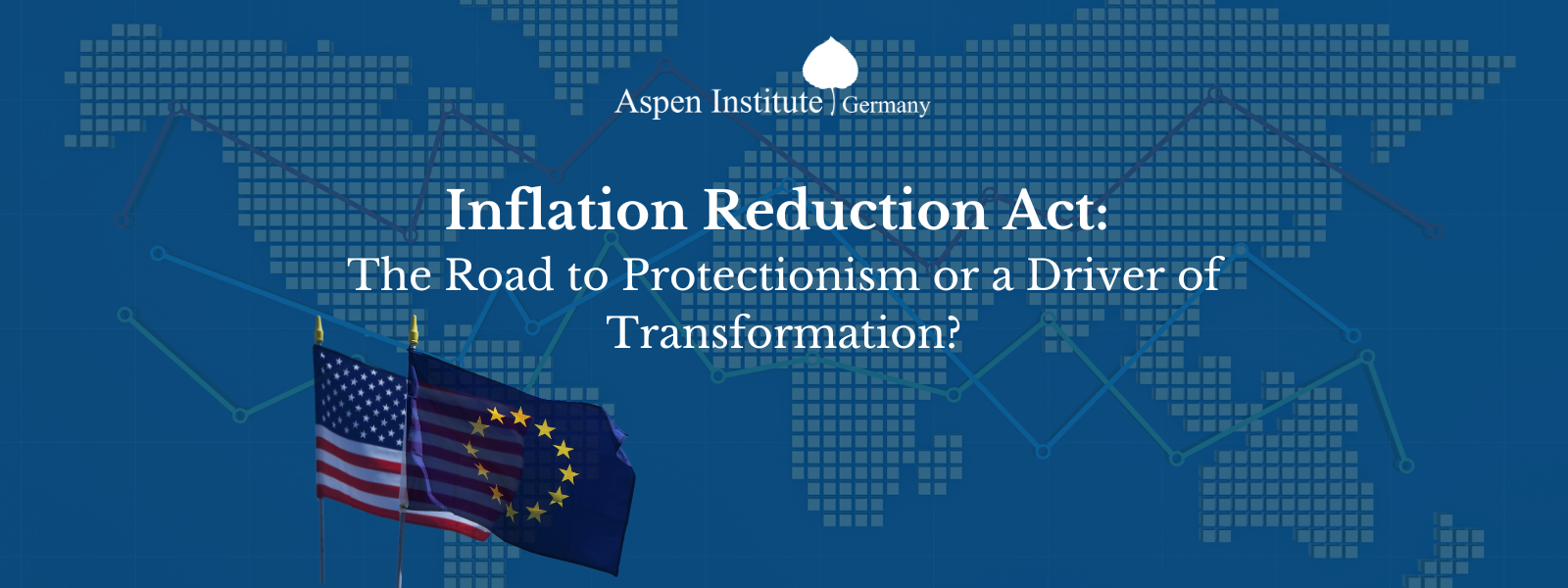- January 31, 2023
- -
- January 31, 2023

At a time when international markets are already reeling from Russia’s war on Ukraine, the U.S. Inflation Reduction Act has caused an international stir. By combining corporate tax increases with subsidies and incentives on renewable energy, specifically electric vehicles produced in the U.S., the Act is projected to greatly reduce U.S. carbon emissions while bolstering its own industry. While some raised the concern that the Act would unfairly disadvantage European industries, other pointed out the benefits of this green energy transition.
Recognizing this tension between the U.S. and the European states in this debate, Aspen Germany hosted a panel discussion on the Inflation Reduction Act on January 31st from 4:45 p.m – 5:45 pm. (CET). The goal was to work out both benefits and disadvantages of the IRA. If free and open transatlantic (and indeed global) trade is the optimal route to accelerating a green energy transition, how can global economic powers work together to subsidize renewable industries? Are the pressures put onto EU industry by the IRA within the realm of “normal” international trade fluctuations, or is it indicative of inherent weaknesses at the heart of the European economy? How could robust transatlantic cooperation help to strengthen global renewable energy supply-chains? We discussed these questions with Michael Froman, Vice Chairman, Mastercard inc and former U.S. Trade Representative; Dan Hamilton, President, Transatlantic Leadership Network, Brookings Institution/Johns Hopkins University; Sabine Jost-Heil, Senior Manager Trade and Industrial Policy, Political Intelligence, Mercedes-Benz Group AG; and Dr. Laura von Daniels, Head of Research Division, Research Division “The Americas”, SWP. The discussion was held under the Chatham House Rule.



